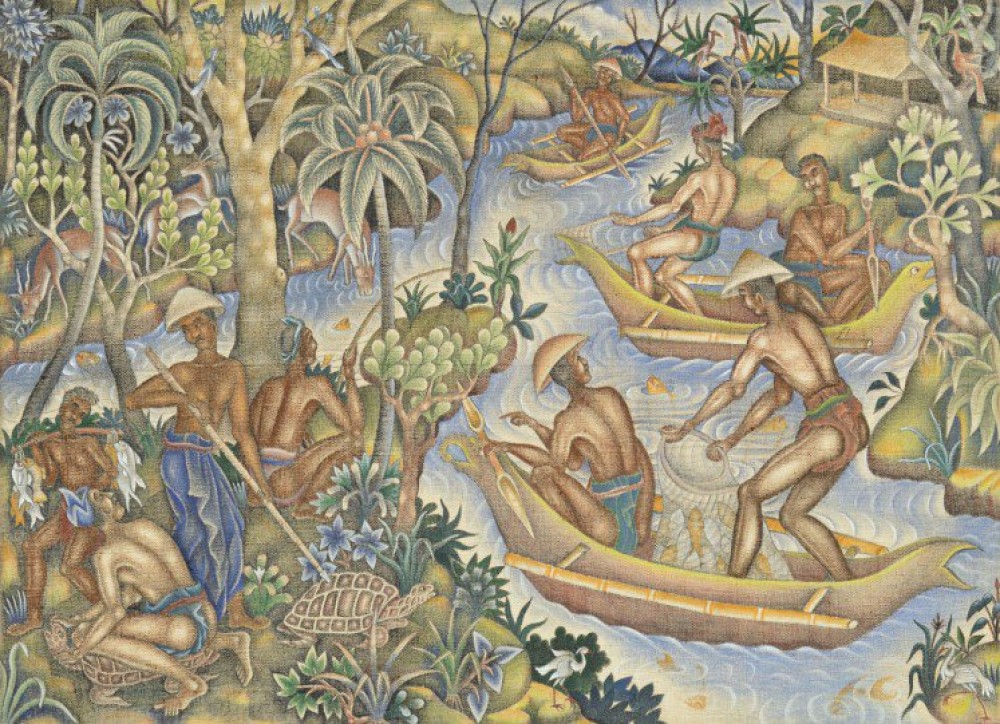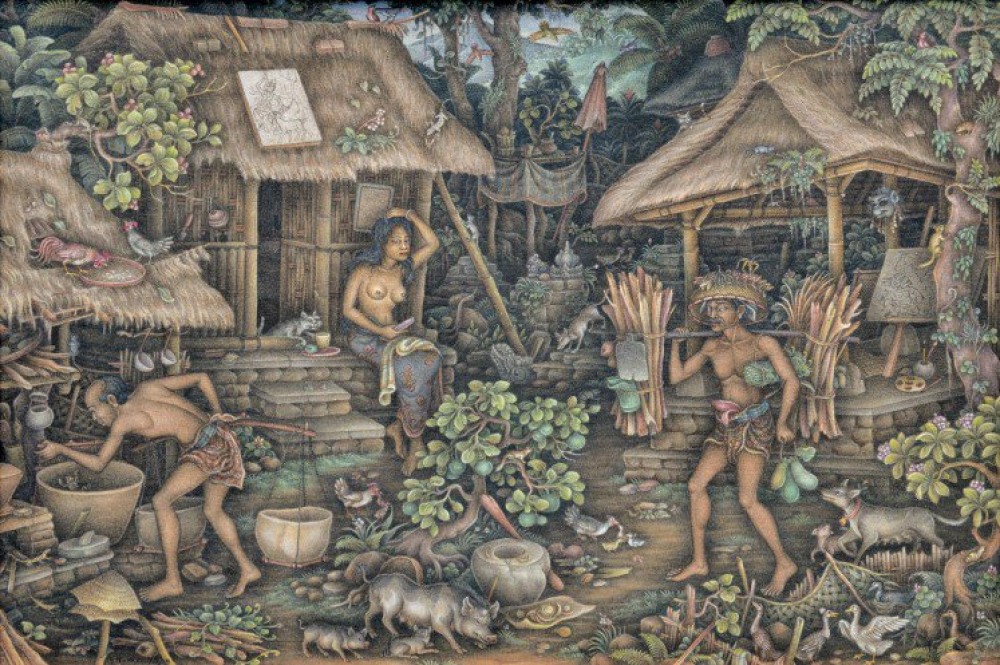
Art auctions are an exciting and accessible way to grow your collection.
For the curious observer and new buyers, auctions are a fascinating
process that gives insight into the art world, often perceived to be
opaque, mysterious and even intimidating.
Auctions allow opportunities for new buyers to enter the market often
at well below gallery prices, which can be cheaper than purchasing
directly from the artist’s studio.
The Larasati Auctioneer’s upcoming Traditional, Modern and
Contemporary Art auction to be held in Ubud, Bali, on Oct. 8 offers 80
lots of fine art for sale in various categories, including Indonesian
and Balinese art, and catering to the budgets of new buyers,
intermediate collectors and the connoisseurs.
Since February 2016, real time internet bidding has been available through the Larasati website,
opening the auction to a global audience. Real-time internet
accessibility allows prospective buyers to follow hammer prices to
assess the market and the level of interest of a certain class or
individual lot, while also allowing for bidding strategies to be
revised.
A feature of the twice-yearly Larrasati auction is always the
fascinating array of modern-traditional Balinese paintings available for
sale. The genre evolved through the influence of the Pitamaha Artist’s
Association, established in 1936 in Ubud to oversee the growth of this
art style catering for new burgeoning markets that quickly developed
during the first wave of tourism to embrace Bali.
Lot 561 'Burung-Burung Surgawi' by Dewa Ketut Rungan (Larasati/File)
Two works of interest by masters of the Pitamaha are Lot 565, Perebutan Tirta Kamandalu by Anak Agung Gde Meregeg (1912-2000) with an estimated price between Rp 60 million (US$4,418) and Rp 80 million; and Lot 575, Sang Hyang Jaran by Tjokorda Oka Gambir (1902-1975), with an estimated price between Rp 20 million and Rp 25 million.
These paintings offer excellent buying opportunities if purchased
within the undervalued estimated prices. Both artists have had enormous
influence on the development of Balinese art. Gambir is one of the
founders of the Ubud School of painting, while Meregeg, one of the first
students of Walter Spies (1895-1942), is the grandfather of celebrated
Ubud painter A.A. Anom Sukawati.
New buyers have excellent opportunities to enter the market with Lot 505, Broken Triangle, 1990, by Made Wianta, which has an estimated price of between Rp 5 million and Rp 7 million; Lot 510, Dua Wanita Jawa, 1988 by Bagong Kussudiardjo (1928-2004) with an estimated price of between Rp 6 million and Rp 8 million; and Lot 511, Figur Wayang,
1990 by Pande Gde Supada, which has an estimated price of between Rp 6
million and Rp 8 million. Both Wianta and Supada played formative roles
in shaping Balinese modern and contemporary art in the 1970’s.
For buyers prepared to hold works for a 10-to 20-year period, some good long-term investments are available here. Lot 564, Calonarang
is an ink-on-paper work by respected Sanur painter Ida Bagus Nyoman Rai
(1915-2000) and has an estimated price between Rp 10 million and Rp 12
million. Lot 566, Mythological Scene is a stunning work by Dewa
Nyoman Leper (1917-1984), with an estimated price between Rp 15
million and Rp 18 million. Nineteen-year-old Pande Made Dwi Artha
typifies the talented new generation of Batuan painters that promise an
exciting future for the most loved and critically acclaimed genre of
Balinese art. His dynamic and fascinating take on the culture of
corruption, Lot 534, People Are My Toys, has an estimated price of between Rp 7 million and Rp 9 million.

Read more @
www.thejakartapost.com